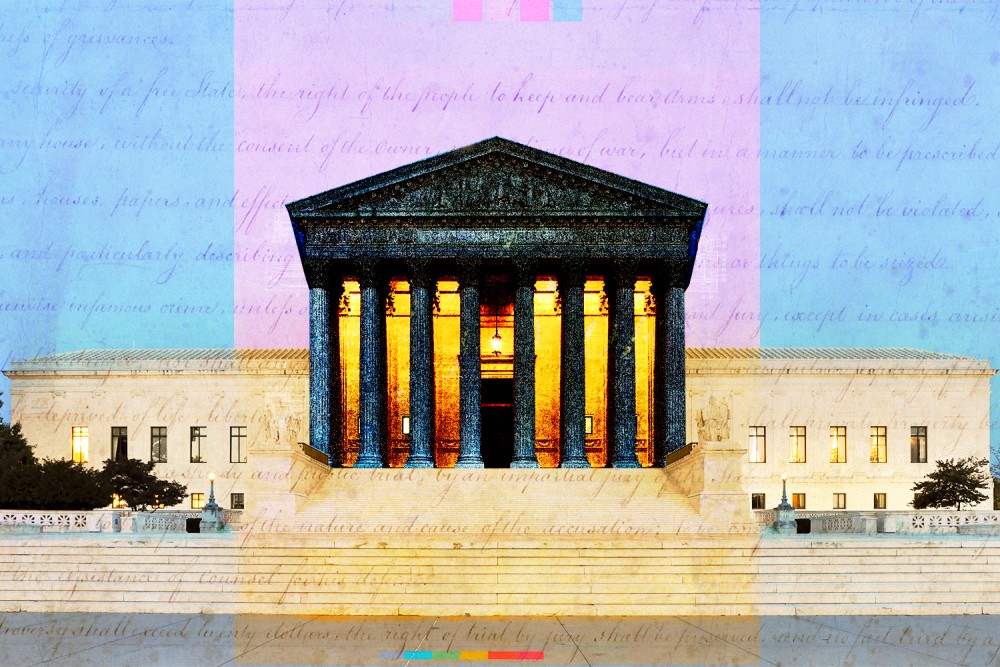The absurdity of originalism
In Rahimi, the Supreme Court seems to have glimpsed the problems with its own Bruen decision on guns. Should we be relieved?

(Century illustration)
It’s hard to imagine a more straightforward case. In November, the US Supreme Court heard oral arguments in United States v. Rahimi. A man convicted of domestic violence, along with multiple other gun-related crimes, wants his guns back, and the justices seemed to agree that he was too dangerous to have them. The court appears likely to uphold the 1994 law prohibiting dangerous individuals involved in domestic abuse cases from obtaining and possessing guns. Rarely has the Supreme Court been handed a case with so little nuance.
But this case was brought to the court because of its own far more sweeping decision last year in New York State Rifle & Pistol Association Inc. v. Bruen. In that case, the court ruled 6–3 that a gun law is unconstitutional unless similar laws existed in the era of the Constitution’s framing. There were no bans on gun possession by domestic abusers in 1791. Domestic abuse was not part of the cultural consciousness, and women were considered property. If we go looking for an analogous law, as Bruen requires, we will come up empty. When the Fifth Circuit Court of Appeals heard the Rahimi case, its logical conclusion was that Bruen had made the 1994 law unconstitutional, so it overturned it.
Judging by the questions justices asked in the Rahimi arguments, the Supreme Court seems to have glimpsed the absurdity of its earlier decision and is now seeking to limit the damage. We might breathe a sigh of relief.
But the broader understanding of history implied in Bruen creates further untenable chaos when applied to contemporary circumstances. In Bruen and in other landmark cases, the Roberts court has cited “history and tradition” in interpreting the Constitution—a phrase by which it appears to mean that unless the framers thought of it, the Constitution doesn’t cover it. As journalist Jay Willis aptly asks, are we really going to make laws based on “whatever Clarence Thomas imagines that James Madison would have thought about it nearly 250 years ago”?
This originalism was confronted by Justice Ketanji Brown Jackson, the Supreme Court’s newest member. In oral arguments during Rahimi, Jackson did not disagree with the proposition that history matters. Instead she asked, whose history? “I’m a little troubled by having a history-and-traditions test that also requires some sort of culling of the history so that only certain people’s history counts,” she said. “Isn’t that a flaw with respect to the test?”
When you consider the history of all of the people, the logic embedded in Bruen reveals itself. In 1791, women were property, Black people were slaves, Native people were considered less than human. The only history that matters in Bruen is that of White, male, landowning Protestants—and if we rely on that history alone, Zackey Rahimi gets to keep his guns, even if it means other people have to die. In Rahimi, the court has confronted its own logic and found it wanting. But there is no sign that Rahimi will transform Bruen’s vision of constitutional originalism.




